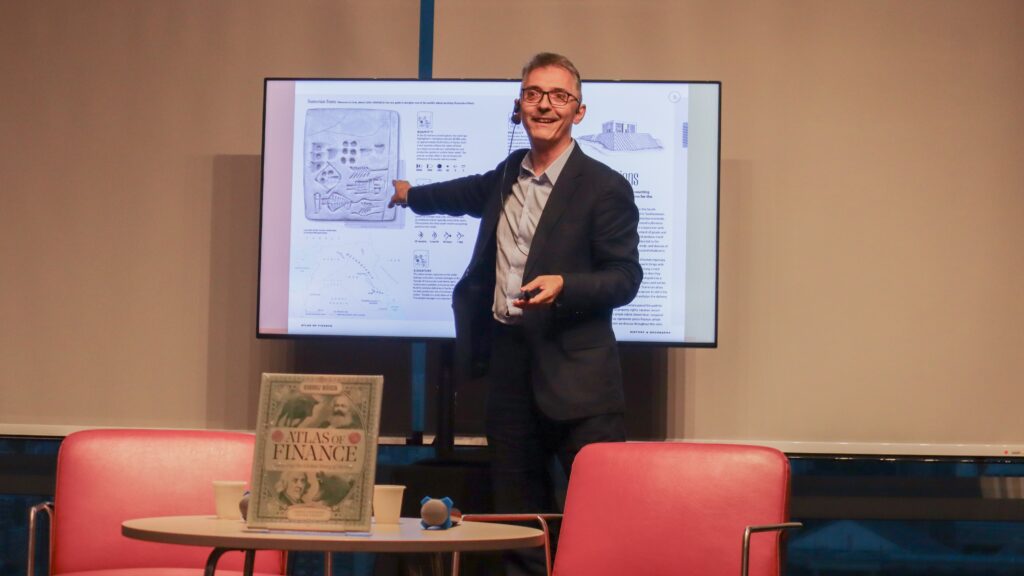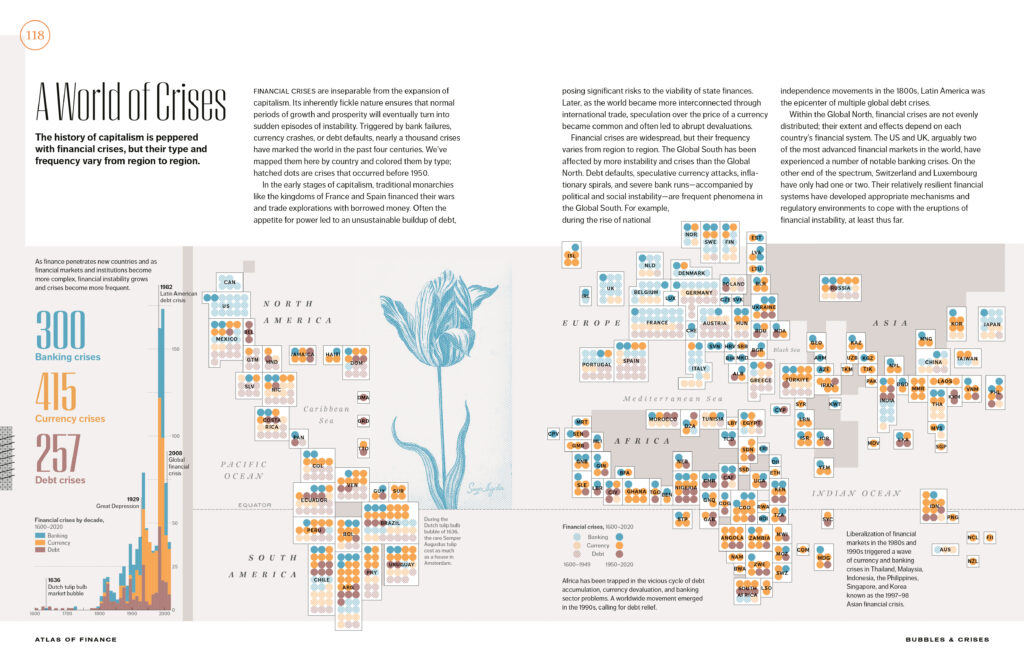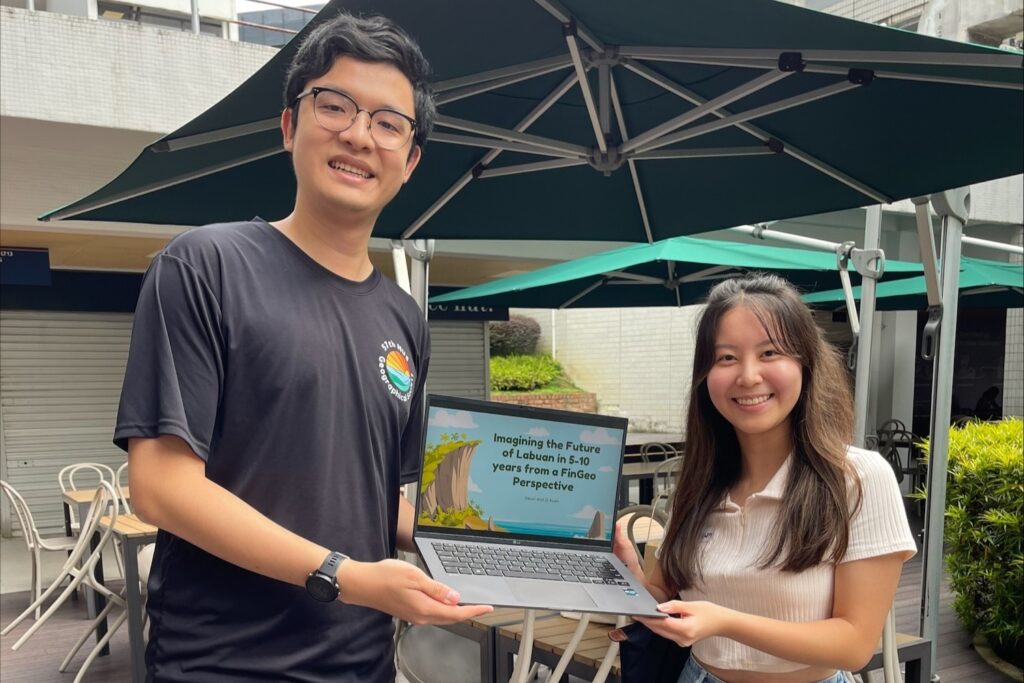Follow the money: Financial geography course uncovers how finance shapes our world
December 26, 2024
IN BRIEF | 10 min read
- In GE3257 Financial Geographies, the first course on this topic to be offered at NUS, students are introduced to financial geography “as a lens through which they can better understand the world, the evolution of human civilisation and its relationships with nature,” says course instructor Professor Dariusz Wójcik.

If there were ever any doubts about the truth behind the saying “Money makes the world go round,” the study of financial geography puts them to rest by investigating how finance intertwines with our societies and environment.
Financial geography is a relatively young field of research that emerged in the 1980s and has gained prominence since the global financial crisis of 2008. It employs an interdisciplinary approach to understand the role of money in politics and culture, national development and environmental concerns, interpersonal relationships and technology.
In GE3257 Financial Geographies, the first course on this topic to be offered at NUS, students are introduced to financial geography “as a lens through which they can better understand the world, the evolution of human civilisation and its relationships with nature,” says course instructor Professor Dariusz Wójcik, a financial and economic geographer with the Department of Geography at the Faculty of Arts and Social Sciences (FASS).
“Students taking Financial Geographies will learn to understand that money is connected to and influences pretty much everything around them, their daily lives, relationships with each other and their environment,” said Prof Wójcik, who has taught a similar course at Oxford University since 2008.
“Financial Geographies will also help them analyse the most important challenges and opportunities in the world, including rising geopolitical tensions, contradictions of sustainable development and new financial technologies. These skills will be valuable to any jobs that involve an understanding of finance in both public and private sectors.”

The inaugural run of Financial Geographies took place in AY2023/24, and the course will be offered again in Semester 2 of AY2024/25 which begins in January 2025. It comprises 12 two-hour interactive lectures with quizzes and discussions, and five two-hour tutorials based on readings, real-world case studies, role-play and student presentations.
The upcoming run will include a trip to the MAS Gallery as an opportunity to reflect on the history of financial development in Singapore and the challenges that the country faces.
“Infectious” passion and enthusiasm
Prof Wójcik’s love of maps and economic geography began in his youth and at 17 years old, he won the Polish National Geography Olympiad in 1990. Around the same time, Poland was transitioning from being part of the Communist Bloc aligned with the Soviet Union to developing its own market economy and democratic system of government.
“When communism collapsed in Poland in 1989, almost overnight everyone started talking about investments and profits,” he recalls. “A stock exchange was recreated in Warsaw and banks were opening new branches in every town and district. I felt that if I wanted to understand this new world, I had to understand how money works, which led me to focus on a combination of finance and geography.”
He has pursued this interest intently, earning three Master’s degrees in geography, economics, and banking and finance and a PhD in economic geography and contributing significantly to research on the topic over the past 25 years through books and research papers. His latest publication in October was Atlas of Finance, the first-ever book-size collection of maps and visuals dedicated to finance.
Prof Wójcik co-founded and chairs the Global Network on Financial Geography, which has about 1000 members in more than 60 countries. He also serves as the editor-in-chief of the dedicated financial geography journal Finance and Space and hosts international conferences for the economic and financial geography community. Registration is currently open for the next conference he is hosting, the Global Research Forum on the Geopolitics and Geoeconomics of Finance, which will take place in NUS from 26 to 28 February 2025.
Students of his Financial Geographies course appreciate the wide-ranging yet understandable content, with third-year Geography student Dawn Lin noting: “It does not matter if you do not have prior knowledge because Prof Wójcik covers everything from the beginning, which was very easy to follow and digest.”
Dawn enjoyed learning about the creation of money, global financial networks, and the increasing role of fintech, as well as getting to pick her own topics for group presentations and individual essays so she could explore what she was most interested in. She researched offshore tax havens and Islamic finance with fellow Year 3 Geography major Lee Zi Xuan for a presentation on the future of the Malaysian territory of Labuan. Taking her interest in football a step further, she also examined the financialisation of European football and its implications on everyday life in an individual essay.

Zi Xuan, who had completed an internship with a venture capital firm shortly before taking the course, came away with a deeper understanding of the impact of finance on the world. “I was aware of how the financial system works in terms of technicalities, but learning about it from the perspective of geography opened my eyes to how finance is not just about money and numbers, but rather it is deeply intertwined with politics, culture, and how many actors (governmental and non-governmental, human and non-human) are involved in finance,” he said.
Describing Prof Wójcik’s passion and enthusiasm as “infectious,” Zi Xuan added: “I strongly recommend the course to any geographer looking to expand their knowledge of the world, especially how finance plays a big part in our lives, from the way we as individuals engage with money, and how money also has its role to play on the global stage.”
This story first appeared on NUSnews on 23 December 2024.

